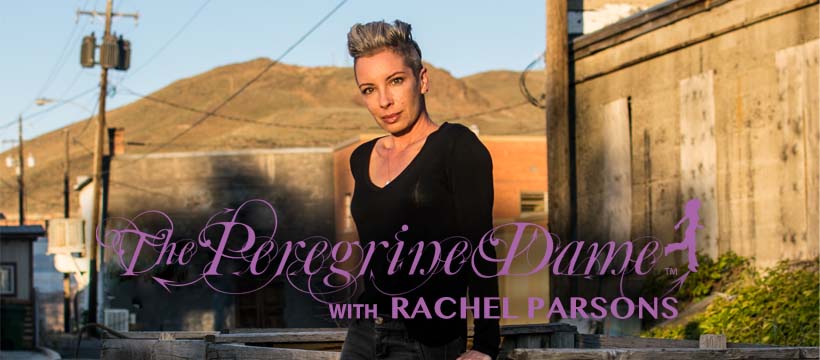Thinking of Traveling This Year? Please Think Again
 |
| Let me explain. No, there is too much. Let me sum up. Please, stay at home. (Literary credit/William Goldman | Photo/Kezia Setyawan) |
By Rachel Parsons
Look, we need to have a real heart-to-heart. I know it’s not what you want to hear. You’re probably going to be annoyed but stick with me. It’s important. It’s about this whole travel-in-2021 thing I keep hearing about.
The article titles give me an eye twitch every time I see them: “The 50 Best Places to Travel in 2021” and “Where Can Americans Travel Right Now? A Country-by-Country Guide.”
Here’s my 2021 travel advice: stay home.
And I get it, I’m antsy, too. I’ve built my travel media career on the idea that travel is essential to being a well-rounded human. And sure, there are vaccines and vaccinations are on the way.
But there’s the rub.
Because, as Andrew Hayward, an infectious disease specialist and senior investigator at Britain’s National Institute for Health Research told me via email, “We do not yet know whether [a] vaccine prevents people from carrying the virus although we would expect it to reduce the level of virus and infectivity.”
So, as a legal temporary resident of the UK, or a US citizen, I could get my two shots, head to oh, say, Bolivia, and risk carrying and passing the virus to someone who has not yet had a vaccination due to global inequality and geo-political maneuvering. Though, like Hayward said, the viral load I carry would likely be lowered because of the inoculation. I would neither feel ill nor have symptoms but would still be capable of transmitting the virus.
And as a recent report in the Journal of the American Medical Association makes clear, “transmission from asymptomatic individuals was estimated to account for more than half of all transmission,” in the cases the researchers examined.
Low- and middle-income countries are already going to have a tough time getting the vaccine compared to high-income countries such as the United States and Britain. As Matt Apuzzo and Selam Gebrekidan write in the New York Times, South Africa may not see vaccinations begin in earnest for six months, even though the country is a large manufacturer of the vaccine. So much for my first dissertation idea in South Africa; or my second or third in other locations.
As a master’s student, I would typically be expected to spend two months this summer doing fieldwork somewhere in the world for my dissertation, but University College London has yet to decide whether its students will be allowed to travel. My department – anthropology – must consider both faces of the coin; one is student health and safety, but the ethics of protecting the health and safety of our research participants in situ is as, if not more, pressing a consideration.
 |
| I get it. We all long to witness a cracking sunset from the window of a 787 again (we'll discuss ecological footprints and emissions problems at a later date). (Photo/Rachel Parsons) |
Sure, it’s nine months from now, but the thing is, according to Andrew Hayward, “We know that natural infection gives protection for at least 6 months and vaccine for a similar period.”
I don’t need a graduate degree to do that math and understand that even if I’m vaccinated today, it may not do me or anyone else any good in the fall. And if I can get a vaccination in August, that still leaves the question of how many people at my destination are likewise protected. The opposite could also mean that if I travel to a country with a high rate of vaccination, yet don't have one myself, I'm still vulnerable to catching the virus in the way described above. Though it's less likely, it may be possible and we simply don't yet know.
With new, more transmissible variations of the virus popping up (a natural thing for a virus), no one in the scientific community really knows what the window of immunity will be.
“We would expect longer protection but don't yet have the data to show it,” wrote Hayward. “We would expect vaccines would need updating from time to time as new strains emerge, in a similar way to influenza.”
I know this is a counterintuitive message coming from me. And trust me, I’d like to get out there too. In the interest of transparency, I did travel last year. I moved to London in September to start (virtual) graduate school in the same time zone as classes. I followed the rules and quarantined for 14 days when I arrived, though I admit it wasn’t strictly essential travel. But I scrapped all my dissertation travel plans, vacation ideas and desires. At least for 2021.
To be fair, some travel publications have an editor’s note attached to articles urging the reader to examine their own degree of comfort and health conditions before jetting off. But it’s not our own health we should be predominantly concerned with – not those of us who are generally in good health to begin with. We should be concerned about the potential harm to people at our destination if the situation in that country or region is different than our own. So please, stay safe. Stay healthy. And stay at home. The sooner we manage the problem, the sooner we can move about the world.
Watch The Peregrine Dame on Amazon Prime Video, Prime Video UK,
Prime Video DE, Facebook, and Youtube.
 |
| Become a patron of TPD |

